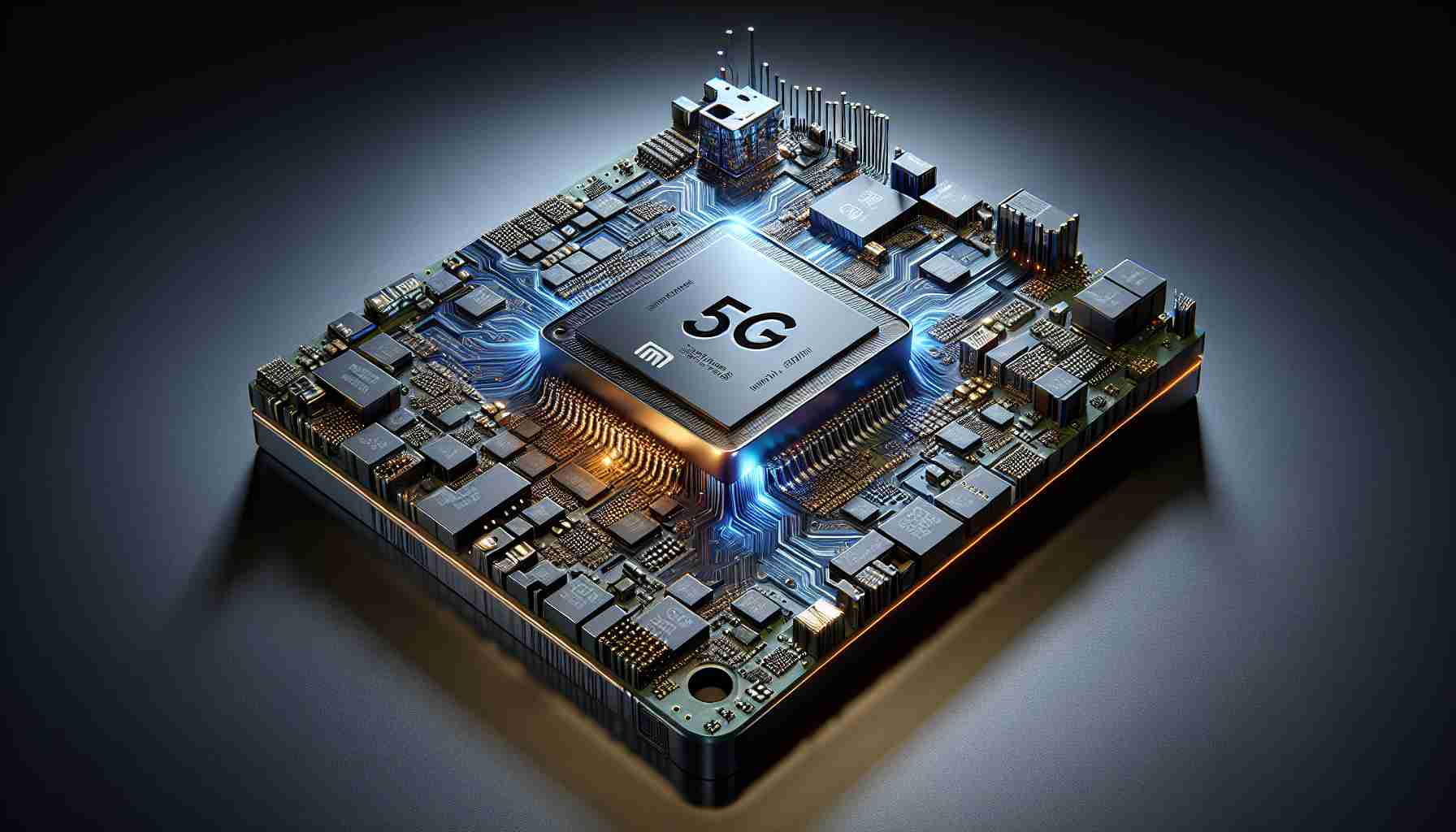Xiaomi is taking a bold step forward in the tech world by introducing its highly anticipated 5G chipset slated for a grand debut in the first half of 2025. This innovative chipset, a result of Xiaomi’s collaboration with Unisoc, will be developed using TSMC’s cutting-edge N4P process.
Industry insights suggest that Xiaomi’s new chipset is poised to shake up the market, boasting exceptional performance levels comparable to the renowned Snapdragon 8 Gen 1. This imminent release marks Xiaomi’s continued foray into producing its own processors, a journey that began back in 2017 with the launch of the Mi 5c smartphone featuring the Surge S1 chipset.
Anticipation is mounting as details emerge about Xiaomi’s SoC project, underpinned by TSMC’s N4P technology that promises exceptional performance metrics akin to leading industry competitors. The incorporation of a 5G modem from Unisoc underscores Xiaomi’s strategic shift towards enhancing performance and energy efficiency in its devices, aimed at reducing reliance on Qualcomm and MediaTek.
As 2025 approaches, Xiaomi’s trajectory looks promising with a string of groundbreaking products in development. This pivotal moment hints at Xiaomi’s commitment to pushing boundaries and setting new standards in the ever-evolving smartphone landscape.
Xiaomi’s Game-Changing 5G Chipset: Unveiling the Unseen Aspects
With Xiaomi’s groundbreaking 5G chipset set to revolutionize the smartphone market in 2025, a host of intriguing questions arise surrounding this technological advancement.
What sets Xiaomi’s 5G chipset apart from its competitors?
Xiaomi’s 5G chipset stands out due to its collaborative development with Unisoc and utilization of TSMC’s cutting-edge N4P process, promising exceptional performance comparable to leading industry players like Snapdragon.
What are the key challenges associated with Xiaomi’s foray into producing its own processors?
One major challenge could be the brand’s ability to consistently innovate and optimize chip performance to compete with established chipset manufacturers like Qualcomm and MediaTek. Additionally, ensuring seamless integration of the 5G modem from Unisoc into their chipset might pose technical hurdles.
What advantages does Xiaomi’s 5G chipset offer to consumers?
Xiaomi’s 5G chipset pledges superior performance and energy efficiency, potentially leading to faster and more power-efficient smartphones. The in-house production could also translate to more competitive pricing for Xiaomi devices in the market.
Are there any controversies or reservations surrounding Xiaomi’s move?
While the anticipation is high, some industry experts raise concerns about Xiaomi’s ability to nail the execution and deliver on the lofty promises set by its new chipset. Additionally, questions regarding the chipset’s compatibility with a wide range of devices might surface.
With every technological innovation, there exist both advantages and disadvantages that shape the perception and adoption of a new product. Xiaomi’s 5G chipset is no exception.
Advantages:
– High performance levels comparable to leading industry players.
– Enhanced energy efficiency promising longer battery life.
– Potential cost savings for consumers due to in-house production.
Disadvantages:
– Uncertainty regarding long-term reliability and support for the chipset.
– Compatibility issues with other devices and technologies.
– Risk of fierce competition from established chipset manufacturers.
As the smartphone market eagerly anticipates Xiaomi’s game-changing 5G chipset, the promises of innovation and performance enhancements come hand in hand with challenges that the brand must overcome to truly make its mark.
For further insights on Xiaomi’s technological advancements and industry impact, visit the official Xiaomi website.























